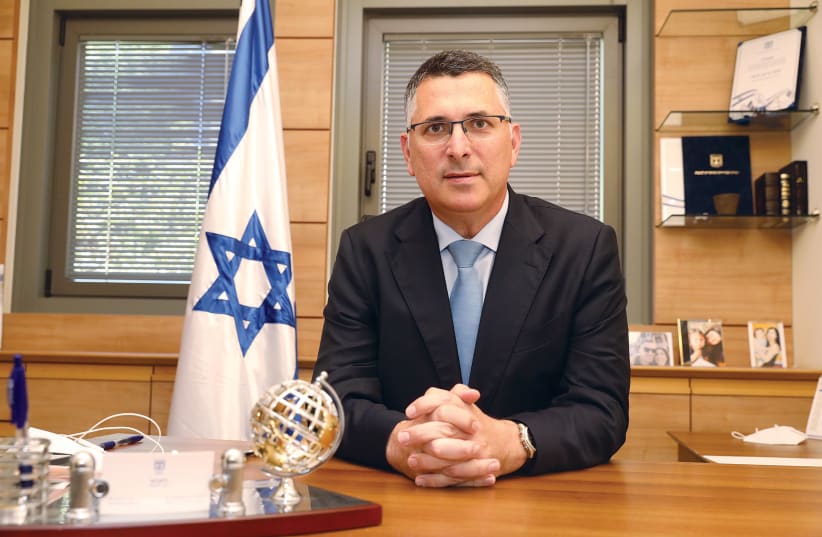ARTICLE AD BOX
Reflecting on his career, Sa’ar remarks: “I think I’m the Israeli politician who has written the most resignation letters. I never focus on the seat; it’s not what interests me.”
By SARI MAKOVER-BALIKOV DECEMBER 14, 2024 17:31 GIDEON SAAR in his Knesset office.
(photo credit: MARC ISRAEL SELLEM/THE JERUSALEM POST)
GIDEON SAAR in his Knesset office.
(photo credit: MARC ISRAEL SELLEM/THE JERUSALEM POST)
The political journey of Gideon Sa’ar, once a fierce rival of Prime Minister Benjamin Netanyahu and now serving as Foreign Minister in his government, has been marked by highs and lows, victories and defeats.
Reflecting on his career, Sa’ar remarks: “I think I’m the Israeli politician who has written the most resignation letters. I wrote a resignation letter when I left politics in 2014 to be with my family. I wrote a similar letter in 2020 when I had to leave the Likud party, which was my home and where I grew up, to establish the National Right Party. This March, I wrote another resignation letter from Netanyahu’s government because I felt things weren’t heading in the right direction, and I couldn’t make an impact. I never focus on the seat; it’s not what interests me.”
You’ve criticized Netanyahu extensively in the past. How do you explain being part of his government today?
“That’s not new,” Sa’ar says. “I joined the government in the week following October 7, along with Benny Gantz and Gadi Eisenkot, out of the understanding that this war is critical for the future of the next generation, and its outcomes will shape the borders of the Middle East. Back then, as today, it seemed to me the most important issue, overshadowing everything else.”
Still, you resigned after six months.
“That might have been a mistake,” he admits, “but at that point, I felt there was stagnation regarding both Gaza and Lebanon. I also felt I had no ability to influence decisions because the war was being managed by a small cabinet. That’s why we stepped down last March.”
And yet, you returned six months later. Why?
“Our return to the government in September was due to two main factors: the change in policy and the understanding that I would have influence in the most limited forums. I had long, discreet conversations with Netanyahu, which were not publicized in the media, where we discussed the war and came to the conclusion that, in this context, we see things eye to eye. Right now, I and other political leaders cannot afford to stand on the sidelines. We must try to influence and help the State of Israel and its people. That’s what I’m trying to do. My entire life, I’ve been a man of the right. There were periods of excellent cooperation with Netanyahu and periods of political and personal rifts. But that was never the most important thing. The most important thing has always been the State of Israel. I never lose sight of the goal for which I’m in this.”
How have people reacted to your return to the government?
“There are people with different views than mine who wanted to use me to promote their agendas, not mine. That excites me to a very limited extent, to say the least,” Sa’ar says pointedly. “To those people, I say: if you were counting on the rift between Netanyahu and me, forget about it. You won’t gain anything from it anymore. Find other ways to promote yourselves.”
What about your relationship with Netanyahu after the political and personal tensions?
“Our relationship is very good,” he states. “We meet often, we talk frequently, and I’m involved and well-informed.”
Does Netanyahu hold a grudge for your past criticisms?
“My sense is that, just as I’ve put past grievances aside, he’s done the same. It’s hard to know what’s in someone’s heart, but by nature, I’m not one to hold grudges. I’ve criticized him, and even today, I don’t see eye to eye with him on everything. It’s not that I’ve abandoned my positions or opinions. But on issues related to the war and the diplomatic campaign, our views are very clear. And since, in my view, this is the most important matter, we are cooperating. Netanyahu is the Prime Minister; he was elected by the people. When I look at the options today, I can say unequivocally that it is far better for Netanyahu to lead—despite all the criticism I’ve had of him—than Gantz or Lapid. That’s my inner truth, and I can’t tell myself a different story.”

 1 week ago
57
1 week ago
57








 English (US) ·
English (US) ·